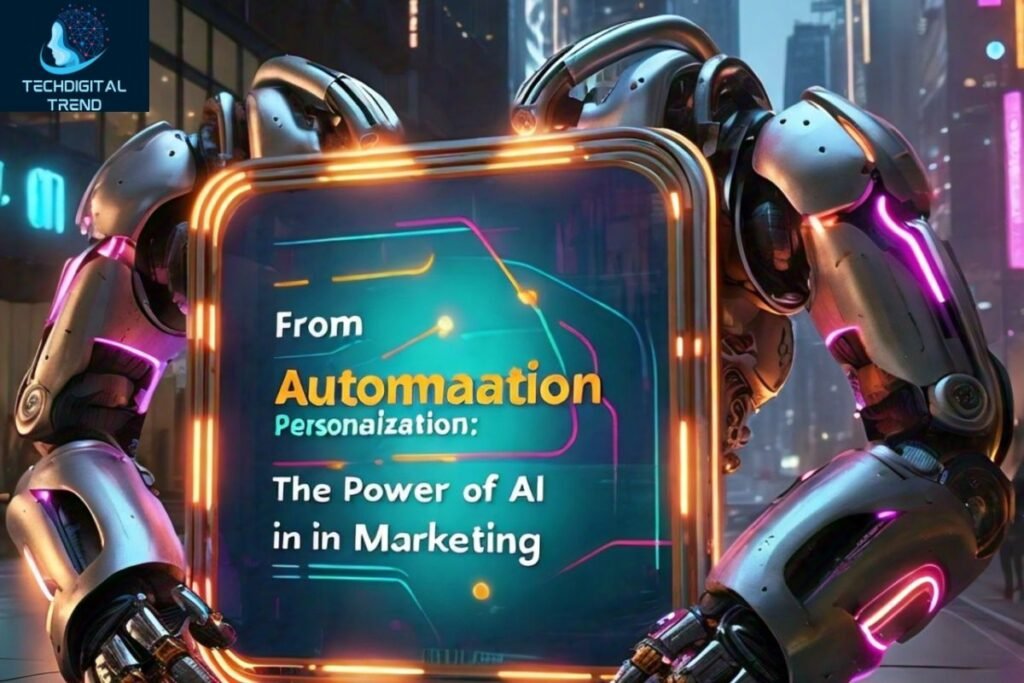Table of Contents
ToggleAutomation
The marketing industry is facing unprecedented challenges, from data overload to personalized customer experiences. However, a new technology is revolutionizing the way we approach marketing: Artificial Intelligence (AI). In 2024, AI-powered marketing automation tools are launching, and they’re transforming the industry. In this article, we’ll explore the 15 ways AI is revolutionizing marketing.
Introduction to AI in Marketing Automation
AI has been gaining traction in the marketing industry over the past few years, and for good reason. The technology has the potential to improve marketing efficiency, effectiveness, and personalization. From machine learning algorithms to natural language processing, AI is being used in various ways to enhance marketing.
Applications of AI in Marketing Automation
AI-powered marketing automation tools are being used to improve marketing efficiency and effectiveness, including:
- Predictive Analytics: AI algorithms can analyze customer data to predict future behavior, such as likelihood of purchasing or churn.
- Personalization: AI-powered solutions can personalize customer experiences in real-time, such as recommending products based on browsing history.
- Lead Generation: AI algorithms can analyze customer data to generate high-quality leads, such as identifying potential customers based on demographic data.
- Content Creation: AI-powered solutions can create high-quality content in minutes, such as generating blog posts or social media posts.
- Campaign Optimization: AI algorithms can optimize marketing campaigns for better ROI, such as identifying the most effective channels and ad creative.
- Customer Segmentation: AI algorithms can segment customers based on behavior, preferences, and demographics.
- Dynamic Pricing: AI algorithms can optimize pricing in real-time based on demand and supply.
- Sales Forecasting: AI algorithms can predict sales performance based on historical data and market trends.
Future of AI in Marketing Automation Industry
As AI technology continues to evolve, we can expect to see even more innovative applications in marketing. From AI-powered chatbots to augmented reality experiences, the future of marketing looks promising.
Other Applications of AI in Marketing Automation
In addition to marketing automation, AI is being used in various other ways in marketing, including:
- Customer Service: AI-powered chatbots can improve customer service experiences, such as providing 24/7 support and answering frequent questions.
- Market Research: AI algorithms can analyze market data to provide actionable insights, such as identifying trends and preferences.
- Competitor Analysis: AI-powered solutions can analyze competitor data to provide competitive insights, such as identifying gaps in the market.
- Content Distribution: AI algorithms can optimize content distribution for better reach and engagement, such as identifying the most effective channels and timing.
- Influencer Marketing: AI algorithms can identify and recommend influencers based on their audience and content.
- Social Media Monitoring: AI algorithms can monitor social media conversations about a brand or product.
Benefits of AI in Marketing Automation
There are several advantages of AI in marketing, such as:
- Improved Efficiency: AI can automate repetitive tasks, freeing up marketers to focus on strategic initiatives.
- Enhanced Personalization: AI can personalize customer experiences in real time, improving engagement and loyalty.
- Better Decision Making: AI can provide actionable insights, improving decision-making and reducing risks.
- Increased ROI: AI can optimize marketing campaigns for better ROI.
Challenges of AI in Marketing Automation
While AI has the potential to revolutionize marketing, there are also challenges to consider, including:
- Data Quality: AI algorithms require high-quality data to provide accurate insights and recommendations.
- Explainability: AI algorithms can be difficult to understand, making it challenging to explain recommendations and insights to stakeholders.
- Ethics: AI raises ethical concerns, such as bias in algorithms and privacy concerns.
- Job Displacement: AI may displace certain jobs in marketing, such as data analysis and campaign optimization.
Conclusion
AI transforms marketing in many ways, from tailored consumer experiences to marketing automation. Artificial intelligence (AI) is rapidly becoming a vital tool for marketers due to its capacity to analyze massive volumes of data, deliver relevant insights, and enhance marketing strategies. We should anticipate seeing even more cutting-edge uses of AI in marketing as the field develops.
Although there are some issues to take into account, such as explainability, ethics, and data quality, the advantages of AI in marketing cannot be disputed. Artificial intelligence is changing the way marketers operate and assisting companies in achieving their objectives, from greater ROI to enhanced efficiency.
It will be crucial for marketers to keep up with the most recent advancements in AI-powered marketing as we move forward and to think about how they might use this technology to enhance their marketing approaches. Regardless of your level of experience as a marketer, AI is undoubtedly something you should investigate.
Open this link: Tap to here















